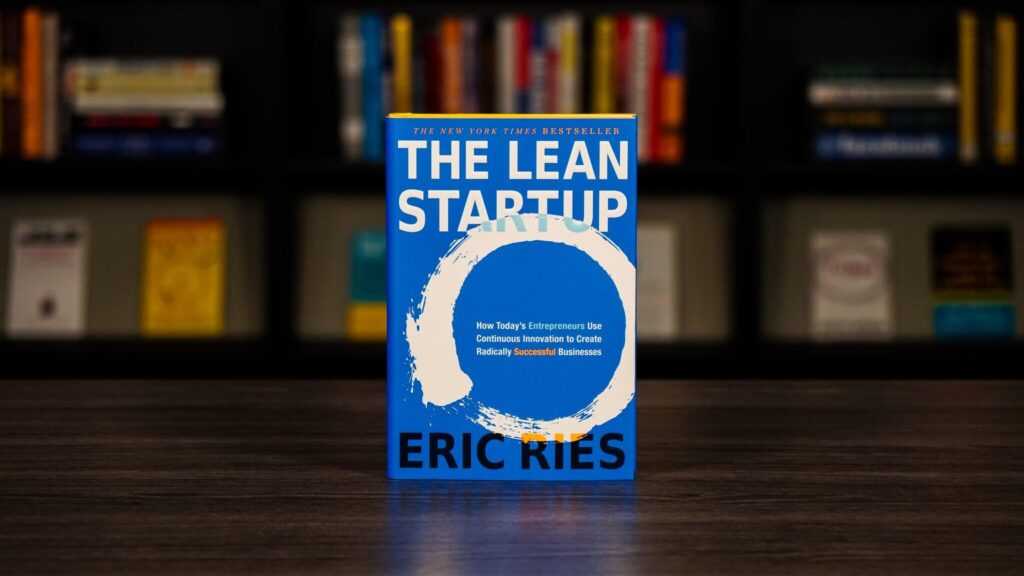Introduction
The Lean Startup: Reimagining Entrepreneurship for the Agile Age, written by Eric Ries, is a groundbreaking book
that challenges traditional business strategies and presents a new approach to building and growing startups.
Ries introduces the concept of the “lean startup” which emphasizes rapid experimentation, validated learning, and
continuous improvement to help aspiring entrepreneurs adapt to an ever-changing business landscape.
In this book review, we will explore the key ideas and takeaways from this influential book.
Key Takeaways
- Build-Measure-Learn Feedback Loop: The build-measure-learn feedback loop is the foundation of
the lean startup methodology. It involves quickly building a minimum viable product (MVP), measuring its
performance, and learning from customer feedback to iterate and improve the product.
- Build-Measure-Learn Feedback Loop: The build-measure-learn feedback loop is the foundation of
What is The Lean Startup Methodology?
The lean startup methodology is a systematic approach to entrepreneurship that focuses on iterative product
development and validated learning. It encourages entrepreneurs to test their assumptions and hypotheses through
constant experimentation, rather than relying solely on traditional market research or intuition.
The key principles of the lean startup methodology include:
- Validated Learning: Instead of spending months or years building a product only to realize
that customers don’t want it, the lean startup approach emphasizes learning through quick iterations and
customer feedback.
- Validated Learning: Instead of spending months or years building a product only to realize
- Minimum Viable Product (MVP): The MVP is a version of a product with the minimum features
required to solve the core problem. It allows entrepreneurs to launch quickly, gather customer feedback, and
make informed decisions about future development.
- Minimum Viable Product (MVP): The MVP is a version of a product with the minimum features
- Pivot: A pivot is a change in strategy or direction based on customer feedback and market
insights. It allows startups to adapt and find better product-market fit without wasting resources on
unsuccessful ideas.
- Pivot: A pivot is a change in strategy or direction based on customer feedback and market
Frequently Asked Questions
Q: How can the lean startup methodology benefit my business?
The lean startup methodology can benefit your business in several ways:
- Rapid Iteration: By embracing continuous experimentation and learning, you can iterate
quickly and adapt your product or service to meet customer needs more effectively.
- Rapid Iteration: By embracing continuous experimentation and learning, you can iterate
- Reduced Waste: The lean startup approach helps you avoid investing significant time and
resources in ideas that might not work, saving you from costly failures.
- Reduced Waste: The lean startup approach helps you avoid investing significant time and
- Increased Customer Satisfaction: By actively involving your target audience in product
development and listening to their feedback, you can create solutions that better address their pain
points.
- Increased Customer Satisfaction: By actively involving your target audience in product
Q: How can I apply the lean startup methodology to my online training business?
If you run an online training business, you can leverage the principles of the lean startup methodology to
improve your offering and generate better results. Here are some ways to apply it:
- When launching a new course, start with a minimum viable product that addresses the core needs of your target
audience. Collect feedback and refine the course based on student experiences. You can learn more about creating an online course on Training Profits.
- When launching a new course, start with a minimum viable product that addresses the core needs of your target
- Continuously experiment with different teaching methods, content formats, and pricing structures to identify
what resonates best with your audience. Use the build-measure-learn feedback loop to gain insights and make
data-driven decisions.
- Continuously experiment with different teaching methods, content formats, and pricing structures to identify
- Stay open to pivoting your training approach or expanding into new niches based on market demands and
evolving trends. Be agile and adaptive to ensure long-term success.
- Stay open to pivoting your training approach or expanding into new niches based on market demands and
Conclusion
The Lean Startup by Eric Ries presents a refreshing perspective on entrepreneurship, offering practical advice
and strategies to navigate the uncertain business landscape. By adopting the lean startup methodology, aspiring
entrepreneurs can increase their chances of success by focusing on validated learning, rapid experimentation, and
continuous improvement. Whether you are a startup founder, an intrapreneur, or simply interested in the world of
entrepreneurship, this book is a must-read.
To explore more ways to grow your entrepreneurial ventures, check out training profits, a platform dedicated to
helping entrepreneurs sell courses online.
